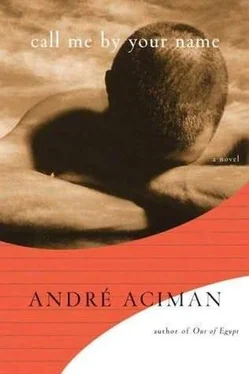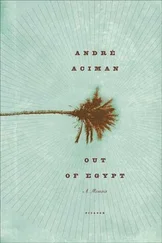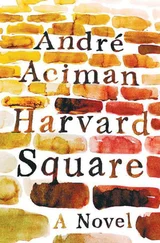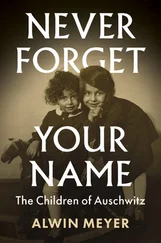André Aciman - Call Me by Your Name
Здесь есть возможность читать онлайн «André Aciman - Call Me by Your Name» весь текст электронной книги совершенно бесплатно (целиком полную версию без сокращений). В некоторых случаях можно слушать аудио, скачать через торрент в формате fb2 и присутствует краткое содержание. Год выпуска: 2007, Издательство: Farrar, Straus and Giroux, Жанр: Современная проза, на английском языке. Описание произведения, (предисловие) а так же отзывы посетителей доступны на портале библиотеки ЛибКат.
- Название:Call Me by Your Name
- Автор:
- Издательство:Farrar, Straus and Giroux
- Жанр:
- Год:2007
- ISBN:нет данных
- Рейтинг книги:5 / 5. Голосов: 6
-
Избранное:Добавить в избранное
- Отзывы:
-
Ваша оценка:
- 100
- 1
- 2
- 3
- 4
- 5
Call Me by Your Name: краткое содержание, описание и аннотация
Предлагаем к чтению аннотацию, описание, краткое содержание или предисловие (зависит от того, что написал сам автор книги «Call Me by Your Name»). Если вы не нашли необходимую информацию о книге — напишите в комментариях, мы постараемся отыскать её.
is clear-eyed, bare-knuckled, and ultimately unforgettable.
Call Me by Your Name — читать онлайн бесплатно полную книгу (весь текст) целиком
Ниже представлен текст книги, разбитый по страницам. Система сохранения места последней прочитанной страницы, позволяет с удобством читать онлайн бесплатно книгу «Call Me by Your Name», без необходимости каждый раз заново искать на чём Вы остановились. Поставьте закладку, и сможете в любой момент перейти на страницу, на которой закончили чтение.
Интервал:
Закладка:
Did he perhaps want a third? she asked. Some people liked more than two eggs. No, two would do, he replied, and, turning to my parents, added, “I know myself. If I have three, I’ll have a fourth, and more.” I had never heard someone his age say, I know myself . It intimidated me.
But she had been won over well before, on his third morning with us, when she asked him if he liked juice in the morning, and he’d said yes. He was probably expecting orange or grapefruit juice; what he got was a large glass filled to the rim with thick apricot juice. He had never had apricot juice in his life. She stood facing him with her salver flat against her apron, trying to make out his reaction as he quaffed it down. He said nothing at first. Then, probably without thinking, he smacked his lips. She was in heaven. My mother couldn’t believe that people who taught at world-famous universities smacked their lips after downing apricot juice. From that day on, a glass of the stuff was waiting for him every morning.
He was baffled to know that apricot trees existed in, of all places, our orchard. On late afternoons, when there was nothing to do in the house, Mafalda would ask him to climb a ladder with a basket and pick those fruits that were almost blushing with shame, she said. He would joke in Italian, pick one out, and ask, Is this one blushing with shame? No, she would say, this one is too young still, youth has no shame, shame comes with age.
I shall never forget watching him from my table as he climbed the small ladder wearing his red bathing trunks, taking forever to pick the ripest apricots. On his way to the kitchen — wicker basket, espadrilles, billowy shirt, suntan lotion, and all — he threw me a very large one, saying, “Yours,” in just the same way he’d throw a tennis ball across the court and say, “Your serve.” Of course, he had no idea what I’d been thinking minutes earlier, but the firm, rounded cheeks of the apricot with their dimple in the middle reminded me of how his body had stretched across the boughs of the tree with his tight, rounded ass echoing the color and the shape of the fruit. Touching the apricot was like touching him. He would never know, just as the people we buy the newspaper from and then fantasize about all night have no idea that this particular inflection on their face or that tan along their exposed shoulder will give us no end of pleasure when we’re alone.
Yours , like Later! , had an off-the-cuff, unceremonious, here, catch quality that reminded me how twisted and secretive my desires were compared to the expansive spontaneity of everything about him. It would never have occurred to him that in placing the apricot in my palm he was giving me his ass to hold or that, in biting the fruit, I was also biting into that part of his body that must have been fairer than the rest because it never apricated — and near it, if I dared to bite that far, his apricock.
In fact, he knew more about apricots than we did — their grafts, etymology, origins, fortunes in and around the Mediterranean. At the breakfast table that morning, my father explained that the name for the fruit came from the Arabic, since the word — in Italian, albicocca, abricot in French, aprikose in German, like the words “algebra,” “alchemy,” and “alcohol”—was derived from an Arabic noun combined with the Arabic article al- before it. The origin of albicocca was al-birquq . My father, who couldn’t resist not leaving well enough alone and needed to top his entire performance with a little fillip of more recent vintage, added that what was truly amazing was that, in Israel and in many Arab countries nowadays, the fruit is referred to by a totally different name: mishmish .
My mother was nonplussed. We all, including my two cousins who were visiting that week, had an impulse to clap.
On the matter of etymologies, however, Oliver begged to differ. “Ah?!” was my father’s startled response.
“The word is actually not an Arabic word,” he said.
“How so?”
My father was clearly mimicking Socratic irony, which would start with an innocent “You don’t say,” only then to lead his interlocutor onto turbulent shoals.
“It’s a long story, so bear with me, Pro.” Suddenly Oliver had become serious. “Many Latin words are derived from the Greek. In the case of ‘apricot,’ however, it’s the other way around; the Greek takes over from Latin. The Latin word was praecoquum , from pre-coquere , pre-cook, to ripen early, as in ‘precocious,’ meaning premature.
“The Byzantines borrowed praecox , and it became prekokkia or berikokki , which is finally how the Arabs must have inherited it as al-birquq .”
My mother, unable to resist his charm, reached out to him and tousled his hair and said, “Che muvi star!”
“He is right, there is no denying it,” said my father under his breath, as though mimicking the part of a cowered Galileo forced to mutter the truth to himself.
“Courtesy of Philology 101,” said Oliver.
All I kept thinking of was apricock precock, precock apricock.
One day I saw Oliver sharing the same ladder with the gardener, trying to learn all he could about Anchise’s grafts, which explained why our apricots were larger, fleshier, juicier than most apricots in the region. He became fascinated with the grafts, especially when he discovered that the gardener could spend hours sharing everything he knew about them with anyone who cared to ask.
Oliver, it turned out, knew more about all manner of foods, cheeses, and wines than all of us put together. Even Mafalda was wowed and would, on occasion, defer to his opinion — Do you think I should lightly fry the paste with either onions or sage? Doesn’t it taste too lemony now? I ruined it, didn’t I? I should have added an extra egg — it’s not holding! Should I use the new blender or should I stick to the old mortar and pestle? My mother couldn’t resist throwing in a barb or two. Like all caubois, she said: they know everything there is to know about food, because they can’t hold a knife and fork properly. Gourmet aristocrats with plebian manners. Feed him in the kitchen.
With pleasure , Mafalda would have replied. And indeed, one day when he arrived very late for lunch after spending the morning with his translator, there was Signor Ulliva in the kitchen, eating spaghetti and drinking dark red wine with Mafalda, Manfredi, her husband and our driver, and Anchise, all of them trying to teach him a Neapolitan song. It was not only the national hymn of their southern youth, but it was the best they could offer when they wished to entertain royalty.
Everyone was won over.

Chiara, I could tell, was equally smitten. Her sister as well. Even the crowd of tennis bums who for years had come early every afternoon before heading out to the beach for a late swim would stay much later than usual hoping to catch a quick game with him.
With any of our other summer residents I would have resented it. But seeing everyone take such a liking to him, I found a strange, small oasis of peace. What could possibly be wrong with liking someone everyone else liked? Everyone had fallen for him, including my first and second cousins as well as my other relatives, who stayed with us on weekends and sometimes longer. For someone known to love spotting defects in everyone else, I derived a certain satisfaction from concealing my feelings for him behind my usual indifference, hostility, or spite for anyone in a position to outshine me at home. Because everyone liked him, I had to say I liked him too. I was like men who openly declare other men irresistibly handsome the better to conceal that they’re aching to embrace them. To withhold universal approval would simply alert others that I had concealed motives for needing to resist him. Oh, I like him very much, I said during his first ten days when my father asked me what I thought of him. I had used words intentionally compromising because I knew no one would suspect a false bottom in the arcane palette of shadings I applied to everything I said about him. He’s the best person I’ve known in my life, I said on the night when the tiny fishing boat on which he had sailed out with Anchise early that afternoon failed to return and we were scrambling to find his parents’ telephone number in the States in case we had to break the terrible news.
Читать дальшеИнтервал:
Закладка:
Похожие книги на «Call Me by Your Name»
Представляем Вашему вниманию похожие книги на «Call Me by Your Name» списком для выбора. Мы отобрали схожую по названию и смыслу литературу в надежде предоставить читателям больше вариантов отыскать новые, интересные, ещё непрочитанные произведения.
Обсуждение, отзывы о книге «Call Me by Your Name» и просто собственные мнения читателей. Оставьте ваши комментарии, напишите, что Вы думаете о произведении, его смысле или главных героях. Укажите что конкретно понравилось, а что нет, и почему Вы так считаете.









